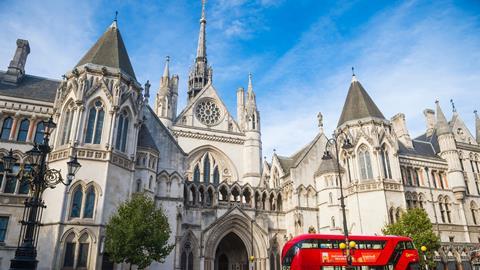A High Court judge today rejected a student’s challenge to a ban on praying at her school, saying the right to freedom of religion does not confer an ‘absolute right’ to manifest religious beliefs.
The anonymous student had sued the Michaela Community Schools Trust over its policy of prohibiting its pupils from performing prayer rituals on its premises. But Mr Justice Linden ruled today that the prayer ritual policy (PRP) did not interfere with the claimant’s rights under Article 9 of the European Convention of Human Rights.
‘I recognise that this may appear to some to be a surprising conclusion’, the judge said, but added that ‘Article 9 protects “freedom” to manifest religious beliefs rather than conferring an absolute right to do so’.
The judge continued: ‘The claimant at the very least impliedly accepted, when she enrolled at the school, that she would be subject to restrictions on her ability to manifest her religion. She knew that the school is secular and her own evidence is that her mother wished her to go there because it was known to be strict.’
The judge referred to a previous case, where Muslim pupil Shabina Begum unsuccessfully sued Denbigh High School in Luton over its refusal to allow her to wear the jilbab. The House of Lords ruled in 2006 that her rights to religious freedom had not been interfered with.
Mr Justice Linden, summarising the principle from this case, said: ‘Voluntary acceptance of the rules or the regime of an institution may mean that the individual has expressly or impliedly agreed to limitations being placed on their freedom to manifest their religious beliefs and therefore cannot subsequently complain when such limitations become an issue.
‘This may be so whether or not the precise limitations are known to the claimant at the moment of joining, and whether or not limitations which are known at the time of joining only become an issue later on as a result of decisions which the claimant takes after joining.’
He also ruled that the claimant had not shown there would be undue hardship or inconvenience if she were to move to a different school which permitted her to pray during the school day.
The High Court heard the PRP was introduced at a time when the claimant was at the end of the second term of Year 9. ‘This was at a point which would have left her ample time to start Year 10 at a different school and begin her GCSE courses there’, the judge said.
This article is now closed for comment.




























21 Readers' comments